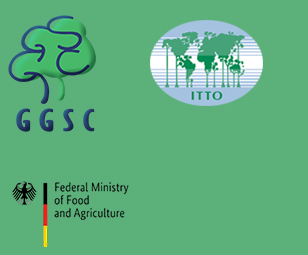
Gabon
Chinese demand drives growth in Gabon's timber industry
Data from the Sectoral Outlook for the First Quarter of 2025 published by the Ministry of Finance and Economy of Gabon revealed that its timber sector is experiencing remarkable dynamism. By the end of March 2025, the composite index of activities in this sector had increased by 15.3% compared to the previous quarter, which was driven in particular by demand from China (especially for veneer and plywood).
Specifically, the sawnwood processing industry showed significant growth, largely supported by sufficient overseas orders. Despite ongoing logistical challenges, the industry had maintained its resilience.
The veneer industry saw active demand, fueled especially by a recovery in Chinese imports. The Ministry of Finance and Economy noted that this dynamism is also reflected in annual growth figures, with annual production rising by 25.6% due to favorable export trends.
The plywood sector continued to benefit from robust demand, supported by steady local market consumption as well as stable demand from the European Union and Asian markets.
89% of Gabon's forestry output concentrated in five provinces
Data from the Central Directorate of Studies, Statistics, and Programs (DCESP) showed that 89% of the country’s forestry production in 2024 came from the following five provinces: Ogooué-Lolo (27%), Ogooué-Ivindo (27%), Woleu-Ntem (19%), Ngounié (11%), and Haut-Ogooué (5%). The remaining output was distributed as follows: Estuaire (4%), Moyen-Ogooué (3%), Ogooué-Maritime (2%), and Nyanga (2%).
However, persistent logistical challenges continued to affect harvesting operations and slowed down the transport of logs to production areas. In Ogooué-Lolo and Ogooué-Ivindo, harvesting was weakened by logistical difficulties, recording an overall drop of 34.9% compared to 2023.
Republic of the Congo
Congo’s Senate approves establishment of National Environment Agency
On August 12, the Senate of the Republic of the Congo passed a bill to establish the National Environment Agency (ANE), aimed at coordinating the implementation of environmental protection projects.
The agency will hold legal personality and financial autonomy, and will be responsible for overseeing and executing national environmental and climate policies. The ANE will also be tasked with formulating relevant regulations, establishing a national environmental information system, and monitoring environmental and social impact assessments related to economic development projects. Additionally, the agency will undertake public awareness campaigns and conduct environmental education initiatives.
Wood trades fair kicks off in Congo
At the 4th edition of the Wood Trades Fair (Sameb) held in Brazzaville on August 11, Rosalie Matondo, the Minister of Forest Economy, emphasized that the timber industry must move toward zero waste, focusing on advanced processing and recycling.
During the event, the manager of Monan Pasi Furniture expressed concern over the scarcity of wood supplied directly from factories and called on forestry companies to provide more materials to support local production. Furthermore, industry representatives urged for the availability of raw materials at more affordable prices to ensure the sustainability and competitiveness of their businesses.
Ghana
Ghana’s FLEGT-licensed timber to enter EU market on October 8
Ghana will officially begin exporting Forest Law Enforcement, Governance and Trade (FLEGT) licensed timber to the European market on October 8, 2025, the Minister for Lands and Natural Resources, Emmanuel Armah-Kofi Buah (MP), has announced.
The declaration came during the 13th Session of the Joint Monitoring and Review Mechanism between Ghana and the European Union (EU) on Wednesday, August 27, 2025.
This milestone marks the end of a 16-year journey to reform Ghana’s forest governance, improve timber legality systems, and promote sustainable trade. Ghana will now become the first country in Africa – and only the second in the world after Indonesia – to issue FLEGT licenses recognized by the EU.
According to the Minister, Ghana’s progress was driven by sweeping reforms, including updates to forestry laws, the rollout of advanced wood-tracking technology, and the training of industry stakeholders. Local communities were also actively engaged to ensure transparency and accountability across the timber supply chain.

| E-mail:ggsc@itto-ggsc.org | Tel:86-10-62888626 |


Sigh Up for Emails |
|